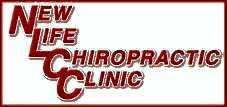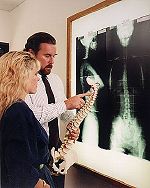| |
|
A. "Iatros"
is Greek for "physician," and "genic" is Greek for
"caused by." Iatrogenic disease is a disease, sickness, impairment,
disfigurement, or death caused by the practice of acceptable medical
care. This does not include malpractice or other medical mistakes.
Even
something as simple as taking aspirin can cause an "iatrogenic
disease." A study at Yale New Haven Hospital showed that 100,000
people die and 1 1/2 million others are hospitalized from iatrogenic
reactions every year in this country. That means that each week 2,000
people die and 30,000 are hospitalized from the medications they take
for the illnesses, not from the illnesses themselves.
An additional 48,000 people die each year in the United States from
unnecessary surgery, according to a Johns Hopkins study. That is nearly
1,000 deaths a week from surgery that should not have been performed.
As
an interesting example, in Israel, in 1973, doctors went on strike and
reduced their daily patient contact from 65,000 to 7,000. This strike
lasted a month. According to the Jerusalem Burial Society, the Israel
death rate dropped 50 percent during that month. There had not been
such a profound decrease in mortality since the last doctors' strike
20 years before. In 1976, in Columbia, the doctors struck for 52 days
and the death rate dropped 35 percent. In Los Angeles County, in 1976,
the doctors went on a work slow-down to protest soaring malpractice
insurance premiums. This coincided with an 18 percent drop in the death
rate. Does this mean that all medicine is bad? Of course not. However,
it is obvious that there are many dangers involved with medicine, that
is why many more MDs are becoming more involved with holistic or more
natural ways of health care. These include nutrition, exercise, and
other lifestyle changes.
Chiropractic
is not a replacement for drugs or surgery. It is an alternative. Chiropractic
should be tried before drugs or surgery whenever possible. We have had
hundreds of patients who have been on various medications with no effects
on improving their health, who then got better with chiropractic. We
have also had many patients who have had medicine or even surgery recommended,
who came to us for a second opinion. In a large number of these cases,
we were successful in treating the patients and helping them to reach
their healthcare goals without drugs or surgery, and in most cases with
long-lasting results.
Does
this mean that chiropractic is the cure-all for everything? Of course
not. Does it mean that we are against all medicine? No. We often refer
out when we find a problem that is out of the scope of chiropractic.
I enjoy a good working relationship with the medical community and have
quite a few doctors and nurses as patients.
In
conclusion, the point of this column is to point out that there is often
another approach to a problem other than drugs or surgery. If you have
been recommended for surgery, especially back surgery, or if drugs are
not getting you results, please seek the advice of a good chiropractor.
  
  

|


